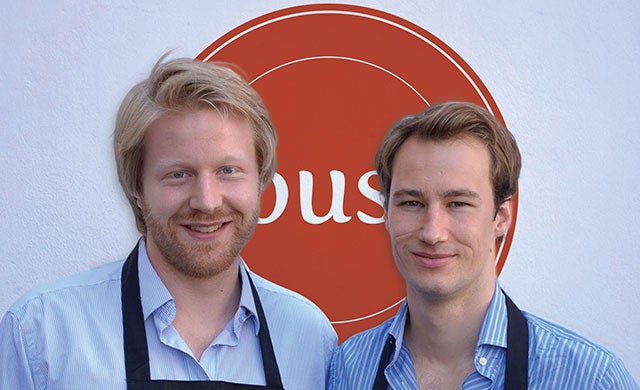Nothing beats a home-cooked meal.
But with the frenzy and flurry of modern-day life, it’s much more difficult to find the time to plan, shop and cook food from scratch.
This was the problem Timo Boldt was addressing when he launched Gousto – a meal-kit delivery service that delivers fresh, pre-portioned ingredients and easy-to-follow recipes straight to customers’ doors.
A notable presence on the Startups 100 Index for 2015, Gousto is now a widely recognised name in the meal kit industry. Facing many highs and lows in its journey, here’s the story of how the company went from a startup idea to a kitchen staple in homes across the UK.
From finance to feasts: how Gousto was founded
Even during his high school years, Gousto’s founder, Timo Boldt, often had entrepreneurship instilled in him, particularly from his godparents.
“They were always pushing me, saying ‘Why are you not starting a company of your own?’,” he commented. “They had started dozens of their own companies, with quite a few going on to be successful. And they lived this amazing lifestyle, so I always looked up to them.”
Having lived between Germany and the US during his studies, Boldt eventually moved to London in 2008, where he started a career in finance as an analyst for financial advisory group Rothschild, before getting a VP position at hedge fund, Petrus Advisers.
However, just four years into his financial career, Boldt decided to pursue a new venture, which led to the launch of Gousto in 2012. From the start, sustainability and convenience were significant core values for the business.
“I wanted to do something that had a positive impact on people and the planet,” Boldt said. “Food waste is one of the top contributors to carbon emissions, and I could see that health, sustainability, and convenience would massively change how we eat.”
Stumbling, but not falling: Gousto’s post-pandemic hurdle
At the time, meal kits were a novel concept in the UK, with Gousto’s primary competitor being HelloFresh. Still, there was a demand for more accessibility to healthy food, so Boldt made it his mission to offer both quality and convenience – something that the UK’s grocery market was missing.
By filling this market gap, the company experienced rapid growth not long after its launch. Boldt and fellow co-founder James Carter also appeared on BBC’s Dragons’ Den in 2013 but were rejected by investors. Nonetheless, Gousto continued to grow, eventually hitting unicorn status in 2021 and generating up to $110.51 million in revenue in the next decade.
However, Gousto hit a wall in 2022. Post-pandemic inflation saw the company lose £158 million in sales – seeing its unicorn status cut to a £250 million valuation. Moreover, despite obtaining an additional £50 million from shareholders and growing its workforce to 1,700 employees, Gousto had to make multiple rounds of workplace redundancies to get back on track.
AI’s recipe for success: cooking up a thriving business
To tackle its declining sales, Gousto would have to find a way to recover from this difficult period. It wasn’t going to be easy, especially with the beginning of the cost-of-living crisis in 2023, which pushed consumers to become increasingly conscious of their spending habits.
Fortunately, Gousto found its answer by increasing its investment in artificial intelligence (AI) technology. That, and a “combined focus on cost discipline and the capacity reset in 2022”, helped the company increase its profit margins despite “significant inflationary pressures”.
Gousto successfully leveraged AI to personalise meal recommendations by analysing past orders, dietary preferences and other data. Through the use of customer feedback and metadata (e.g. cuisine, cooking method, cooking time, etc), Gousto’s system can get a better understanding of taste preferences, in turn creating customised and tailor-made plans.
Machine learning is now also utilised to predict future customer demands, helping to amend its inventory based on those likely preferences. Moreover, it uses AI to improve warehouse operations, such as order allocation and picking processes. For example, its production facility in Warrington uses auto-replenishment, auto-routing and pick face optimisation, increasing its pack speed to 140% and its accuracy to 99.97%. Operational food waste is also limited to less than 1%.
Gousto’s ingenious use of AI didn’t fall short, as the company achieved a 700% growth in its customer base and hit $93.4 million in revenue in 2024 – a significant jump from its lowest point of $47 million the previous year.
Conclusion
Despite economic challenges, Gousto continues to be a pioneer in the meal kit industry.
As for the future, Boldt announced on LinkedIn that the company launched its “strongest offering ever” at the beginning of 2025, including a bigger menu selection, more recipes for health goals (e.g. high in protein or calorie-controlled) and trialling its next-day delivery service.
Even as the cost-of-living crisis continues and economic uncertainties hurt more businesses, the future is definitely looking appetising for Gousto.



